7 Stocks Activist Investors Have in Their Sights
Activist investors build stakes in struggling companies in hopes of enacting change and boosting shareholder returns. Here are seven they're targeting right now.


Profit and prosper with the best of Kiplinger's advice on investing, taxes, retirement, personal finance and much more. Delivered daily. Enter your email in the box and click Sign Me Up.
You are now subscribed
Your newsletter sign-up was successful
Want to add more newsletters?

Delivered daily
Kiplinger Today
Profit and prosper with the best of Kiplinger's advice on investing, taxes, retirement, personal finance and much more delivered daily. Smart money moves start here.

Sent five days a week
Kiplinger A Step Ahead
Get practical help to make better financial decisions in your everyday life, from spending to savings on top deals.

Delivered daily
Kiplinger Closing Bell
Get today's biggest financial and investing headlines delivered to your inbox every day the U.S. stock market is open.

Sent twice a week
Kiplinger Adviser Intel
Financial pros across the country share best practices and fresh tactics to preserve and grow your wealth.

Delivered weekly
Kiplinger Tax Tips
Trim your federal and state tax bills with practical tax-planning and tax-cutting strategies.

Sent twice a week
Kiplinger Retirement Tips
Your twice-a-week guide to planning and enjoying a financially secure and richly rewarding retirement

Sent bimonthly.
Kiplinger Adviser Angle
Insights for advisers, wealth managers and other financial professionals.

Sent twice a week
Kiplinger Investing Weekly
Your twice-a-week roundup of promising stocks, funds, companies and industries you should consider, ones you should avoid, and why.

Sent weekly for six weeks
Kiplinger Invest for Retirement
Your step-by-step six-part series on how to invest for retirement, from devising a successful strategy to exactly which investments to choose.
Most investors tend to shy away from troubled companies because they can really weigh on returns. Activist investors, on the other hand, actively seek out underperforming businesses, acquiring big equity stakes in the anticipation of forcing changes that will improve the share price.
Activist investors target companies that are poorly managed, inefficient, overpaying for acquisitions or suffering from a slew of other maladies that detract from shareholder value. They then push actions that they believe will benefit stockholders such as business restructurings and spinoffs, share repurchases and dividend hikes.
And a new category of activist investor has also emerged in recent years: those primarily concerned about environmental, social and governance (ESG) issues. ESG activists successfully lobbied for seats on the board of Exxon Mobil (XOM) last year and are pushing Royal Dutch Shell (RDS.A) to spin off its renewable energy business.
Here are seven stocks on the radar of activist investors. Some of these companies are newly under siege, while others are in embroiled in proxy fights and still others are listening and make changes.
Just understand that while activist investor campaigns sometimes produce results that dramatically improve the share price, activist-targeted stocks should be approached with caution. According to a 2019 Harvard Law School report, just 17% of activist investor campaigns that year were successful; the vast majority of campaigns – 56% – either failed or were still in progress one year later.
Still, sometimes, an activist investor's involvement alone can be enough to drive at least short-term gains.
Data is as of Feb. 4. Dividend yields are calculated by annualizing the most recent payout and dividing by the share price.

Peloton Interactive
- Market value: $8.1 billion
- Dividend yield: N/A
Peloton Interactive (PTON, $24.60) became an instant success story during the early days of the pandemic when mandatory gym lockdowns caused demand for in-home fitness equipment to skyrocket.
During the latter part of 2020, PTON was delivering triple-digit sales growth and a roughly $170 share price. The company, which made its public debut just two years ago, makes digitally connected stationary bikes and treadmills. In addition, it has roughly 5.9 million members on its platform, which includes its Peloton digital app that streams live and on-demand fitness classes.
A series of setbacks over the past year have resulted in a roughly 84% 12-month share-price decline through Feb. 4 – as well as the company swinging from a net profit to a net loss.
Peloton's woes began last May when the company issued a voluntary recall of its treadmills due to reported injuries among users. In August, the company cut the price of its less-expensive bike by 20%. Shares fell again in December when a popular character on HBO Max's "Sex and the City" show was depicted dying of a heart attack after taking a Peloton spin class.
These troubles were only exacerbated in early 2022 amid headlines that PTON was temporarily halting production of its bikes and treadmills due to weak demand – though CEO John Foley denied the press reports.
Amid this turmoil, PTON caught the eye of investment firm Blackwells Capital. A late-January report in The Wall Street Journal indicated the activist investor has accumulated a stake of less than 5% in PTON and is calling on the company to fire its CEO and put the business up for sale. According to the WSJ, Blackwells believes Peloton would be a good acquisition for a larger technology company like Amazon (AMZN) or Apple (AAPL) that also have fitness products. (On Feb. 7, the stock spiked higher on unconfirmed reports the company has received buyout bids from several suitors, including Amazon.)
Despite these recent setbacks, there are still Wall Street firms that are believers in PTON stock. Stifel analyst Scott Devitt in January upgraded PTON to Buy from Hold, arguing that the recent selloff is overdone, especially considering Peloton is still expanding its subscriber base. Analysts from Needham, Loop Capital and BofA also recently reiterated their Buy ratings.
Consensus analyst estimates look for Peloton to deliver a per-share loss this fiscal year and next, making these shares best-suited for highly risk-tolerant investors.

Unilever
- Market value: $132.7 billion
- Dividend yield: 4.0%
Consumer goods giant Unilever (UL, $51.40) hopes to increase profits by divesting struggling brands and expanding its foothold in higher-growth categories.
The company, which owns well-known brands like Dove soap, Hellmann's mayonnaise and Knorr's soups, expanded its wellness and supplement product lines in early 2021 via the purchase of leading holistic health product maker Onnit. In mid-November, Unilever agreed to sell its worldwide tea business, which includes brands like Lipton and TAZO.
More recently, Unilever faced backlash from investors in mid-January when it revealed it bid $68 billion for GlaxoSmithKline's (GSK) consumer products business – an offer GSK turned down. UL shares dropped more than 14% on the news.
However, shares bounced back amid reports hedge fund Trian Partners, led by prominent activist investor Nelson Peltz, has built a stake in Unilever. Peltz has prior experience with consumer goods companies, having been on the board of directors at Procter & Gamble (PG) and previously been a stakeholder in Mondelez (MDLZ).
While Trian Partners hasn't commented publicly on Unilever's business, Peltz met with the firm's CEO last September to discuss a Ben & Jerry's boycott after the ice cream brand refused to sell its products in the Israeli-occupied West Bank. Unilever is dodging this thorny issue by putting its ice cream brands, which also include Breyer's and Klondike, in a standalone unit.
On the heels of the activist investor news, Unilever disclosed plans to cut 15% its regional and divisional management roles, which the company says will help to trim costs and speed up decision-making. Unilever also says it will not increase its bid for the GlaxoSmithKline business.
This is likely good news to British fund manager Terry Smith, whose Fundsmith investment vehicle is Unilever's 13th largest stakeholder. Smith called the attempted acquisition a "near death experience" and called on Unilever to focus instead on improving its operating performance.
As for its financial performance, in its most recent earnings report, Unilever said sales were up 4.4% year-over-year through the first nine months of 2021, while earnings were up 1.7%. UL cautioned that rising inflation will impact results into next year, but said it will take "appropriate price action" to offset higher costs.
Analyst opinions on UL stock are mixed, though they have a slightly bullish tilt. Those in this camp cite the company's strong brands, operating leverage and generous dividend as reasons to invest in UL.

Huntsman
- Market value: $7.8 billion
- Dividend yield: 2.1%
Huntsman (HUN, $35.81) is a global manufacturer and marketer of specialty chemicals, which are produced by three business units and manufacturing operations in 30 countries.
Strong pent-up demand in 2021 coming out of the pandemic helped Huntsman deliver 51% sales growth and 97% adjusted EBITDA (earnings before interest, tax, depreciation and amortization) gains during the September quarter.
However, the company's long-term performance has been lackluster. Since going public 17 years ago, Huntsman's shares have risen only about 50%. In addition, recent sales and EBITDA gains are mainly due to price increases; volume grew only 2% year-over-year.
There's room for improvement to these operating results, says hedge fund Starboard Value. The activist investor recently acquired an 8% stake in Huntsman and declared plans to seek four seats on the company's board of directors.
"We invested in Huntsman because of the Company’s strong market positions, diverse product portfolios, innovative chemistries and difficult to replicate manufacturing footprint," Jeff Smith, managing member at Starboard, wrote in a letter to Huntsman CEO Peter Huntsman. "We firmly believe that with the right Board in place, Huntsman can be a best-in-class company in its industry and generate significant value for all shareholders."
In response to Starboard's comments, Huntsman said it was pursuing a potential sale of its slower-growing textile effects division, initiating a $1 billion share repurchase program and tying the majority of future executive compensation to performance goals. The company also highlighted shareholder value created last year via the $2 billion sale of its commodity chemical portfolio, which both sharpened its focus on higher-margin businesses and contributed to a total shareholder return that roughly doubled between 2017 and early 2022.
Jeffries analysts (Buy) think Huntsman is poised for "transformative" M&A activity over the next several years – which could help fend off activist investor attacks.
Deutsche Bank analyst David Begleiter, meanwhile, added HUN stock to its "Catalyst Call Buy" list in January and sees the company "pulling out all stops" to deliver great December quarter results and 2022 guidance ahead of its March shareholder meeting where HUN shareholders will vote on adding Starboard nominees to the board. Begleiter also expects Starboard to offer detailed recommendations that it believes will benefit all HUN shareholders before the March meeting.
HUN shares appear undervalued at the moment, trading at 10.3 times forward earnings, a nearly 30% discount to industry peers and roughly 30% below the company's five-year average.
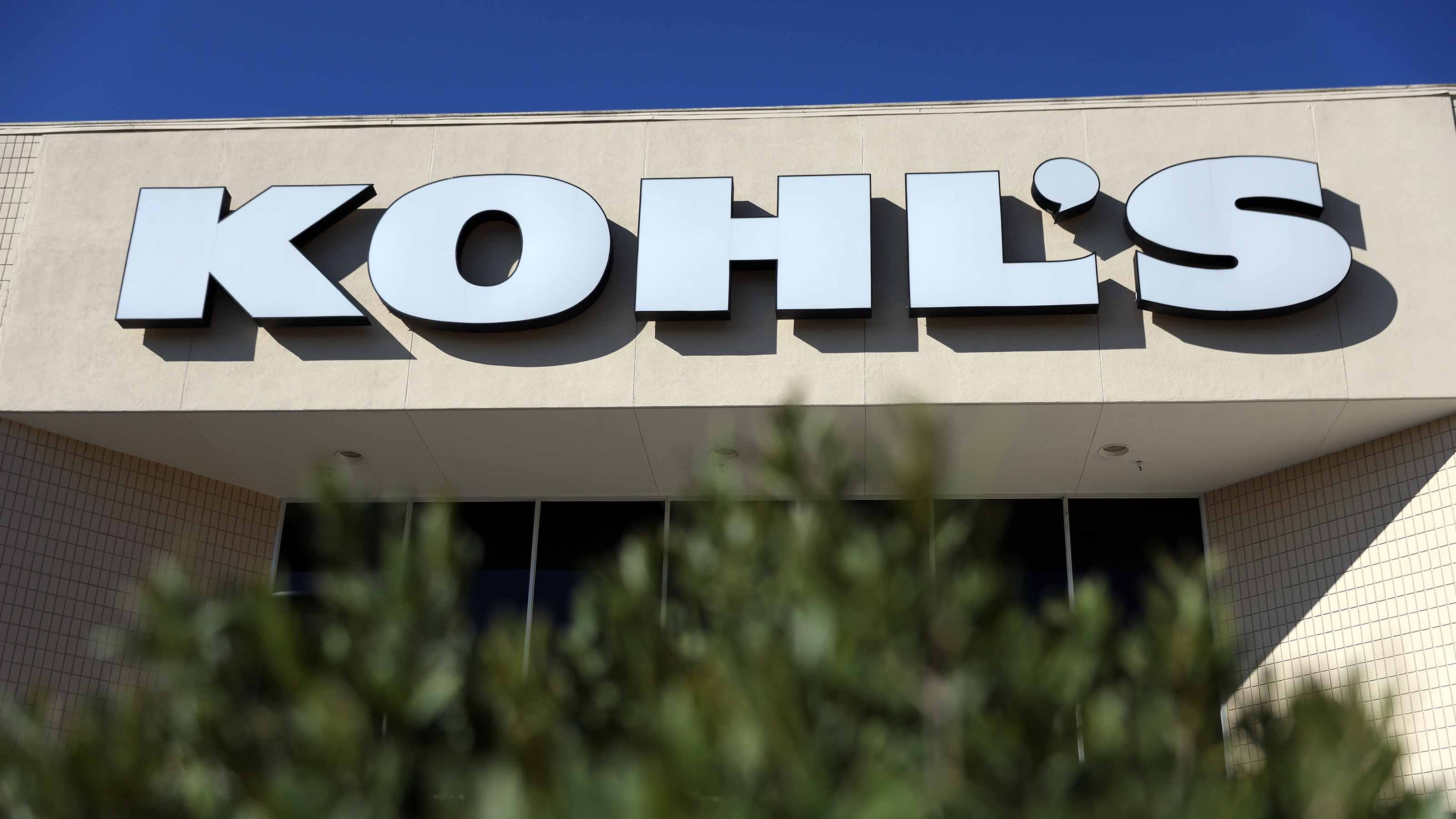
Kohl's
- Market value: $8.3 billion
- Dividend yield: 1.7%
Kohl's (KSS, $59.68) operates 1,162 department stores across the U.S. Like many bricks-and-mortar retailers, Kohl's has struggled due to competition from online rivals. The company hopes to turn its business around by growing higher-margin active brands to 30% of sales, rolling out Sephora kiosks in 850 of its stores and stepping up investment in its e-commerce business, which is delivering steady double-digit sales gains.
KSS opened Sephora kiosks in 200 stores last year and grew active brands by 20%. These actions supported 16% sales gains during the September quarter and record adjusted earnings per share for the third quarter. The company also strengthened its financial position, ending the quarter with roughly as much cash as long-term debt ($1.9 billion) on its balance sheet. These strong results led to a 22% increase in full-year 2021 adjusted EPS guidance.
Despite improved results, Kohl's is under pressure from two activist investors – Engine Capital and Macellum Advisors. Engine Capital wants Kohl's to sell itself or spin off its e-commerce business. Macellum is pushing for the company to add board members with retail experience and/or to explore a potential sale of the business. Analysts value Kohl's real estate holdings at $6 billion-$7 billion, or nearly 80% of the company's market valuation.
A bidding war has attracted potential buyers. Acquisition company Acacia Research is offering $64 per share for KSS and private equity firm Sycamore Partners is reportedly willing to pay $65 – though the retailer turned down both bids in early February.
Credit Suisse analyst Michael Binetti estimates fair market value is closer to $70-$80 per share, which he derives by valuing Kohl's real estate at $6.5 billion and its operations at a 3 to 4 times EBITDA. Cowen analyst Oliver Chen, meanwhile, thinks Kohl's shares could fetch over $85 per share.
UBS analyst Jay Sole, on the other hand, thinks that rising inflation and interest rates, coupled with inventory buildup, will hurt the company's sales and margins this year. Sole cut his KSS rating to Sell in January.
Whatever the outcome, buyout speculation has been good for KSS investors, who have seen shares rise nearly 20% this year. Even with this surge, KSS remains cheap, trading at just 8.2 times forward earnings – a greater than 40% discount to retail peers and nearly 55% less than its five-year average.
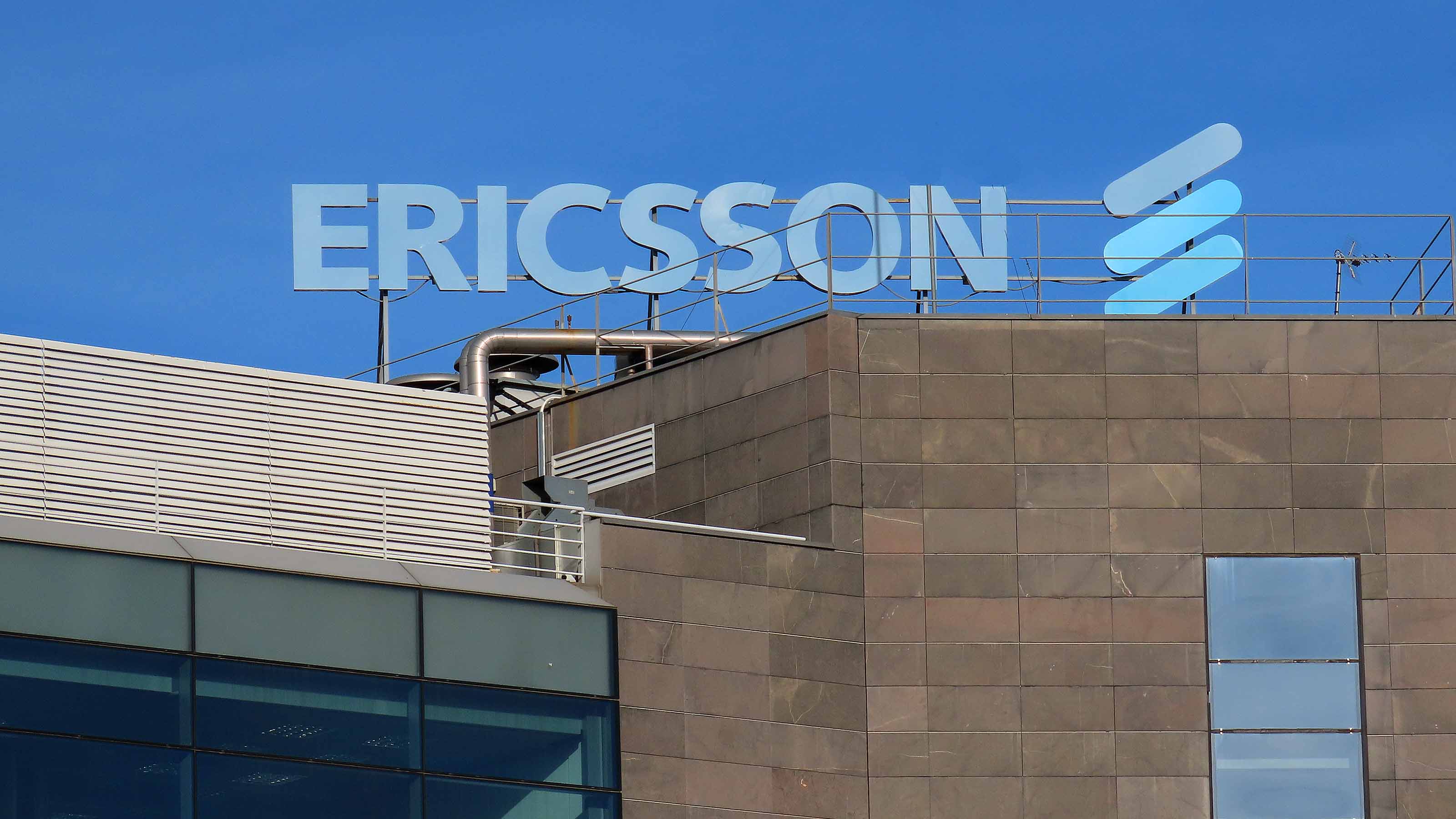
Ericsson
- Market value: $41.7 billion
- Dividend yield: 2.0%
Sweden-based telecom Ericsson (ERIC, $12.44) is one of the world's largest providers of telecom equipment, infrastructure and services. The company also recently became the worldwide leader in 5G when its chief rival, China-based Huawei, was hit with sanctions by the Trump administration. Ericsson currently supplies telecom equipment to all three major U.S. carriers – AT&T (T), Verizon (VZ) and T-Mobile (TMUS).
In its fiscal 2021, Ericsson generated 4% year-over-year sales growth, 29% EPS gains and a 44% improvement to adjusted free cash flow. ERIC also announced plans to further increase EBIT margins by expanding its enterprise business via the acquisition of cloud communications firm Vonage, and developing a global network platform to capitalize on 5G rollouts.
Ericsson announced the $6.2-billion acquisition of Vonage (VG) in late 2021 and expects it to create $400 million of cross-selling synergies by 2025 and sees cost efficiencies emerging after the deal is closed sometime within the first half of this year. Ericsson also anticipates the acquisition will be accretive to adjusted EPS and free cash flow beginning in 2024.
In January, Ericsson came under attack from Swedish investment firm Cevian Capital, one of its top three shareholders. Cevian complains that Ericsson is not doing enough to improve its stock price and delivered a list of demands to the company that include divesting or spinning off its managed services business, reducing losses in digital services, and better articulating its goals and strategies for its enterprise business.
The activist investor also criticized the Vonage deal, questioning Ericsson's willingness to pay more than 50 times EV/EBIT, with EV standing for enterprise value, for Vonage when the company could repurchase ERIC stock at 8 times EBIT.
ERIC shares are up more than 14% year-to-date, but are still priced roughly 30% below peers and 77% lower than the stock's five-year average forward P/E.
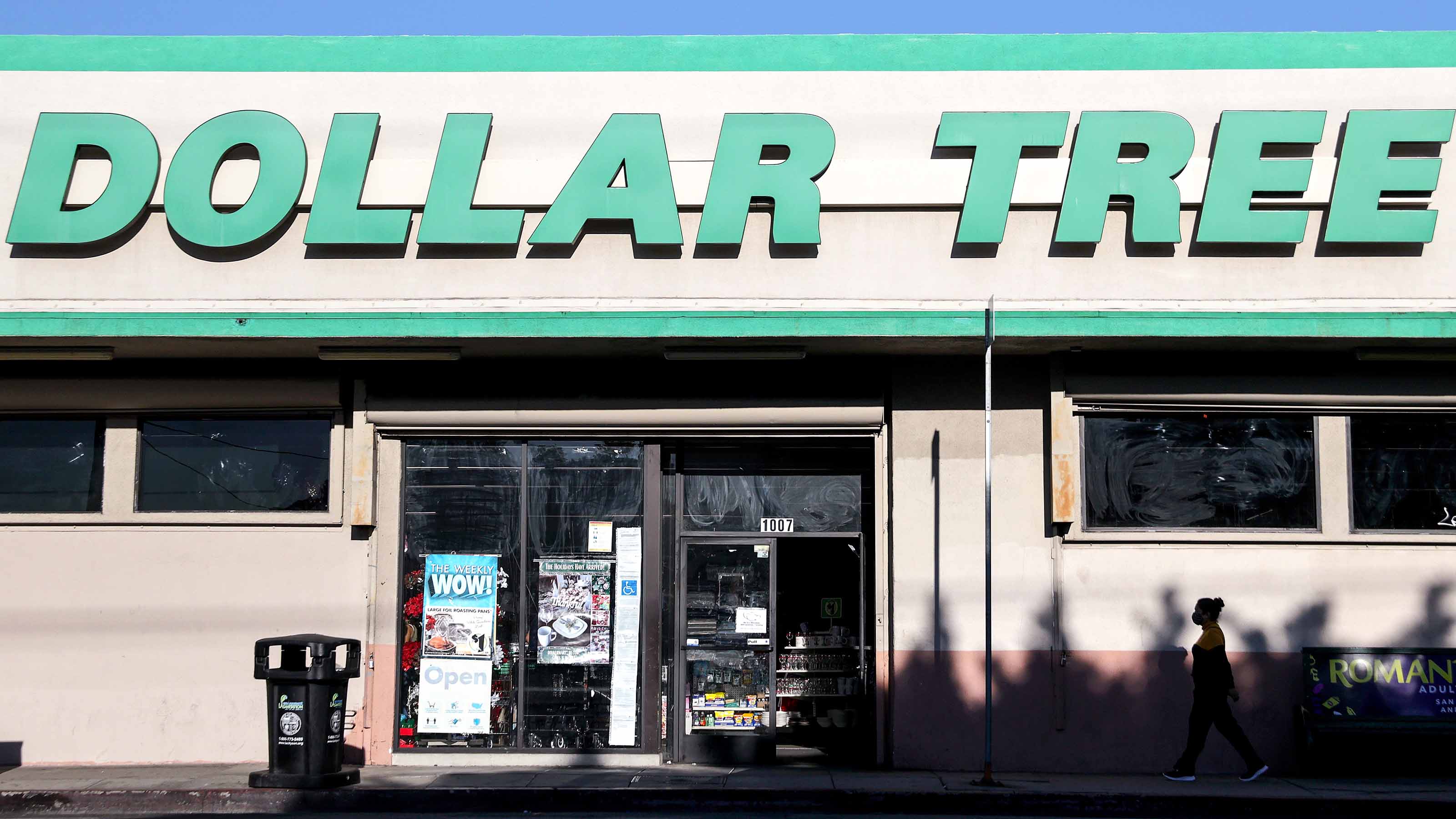
Dollar Tree
- Market value: $30.0 billion
- Dividend yield: N/A
Dollar Tree (DLTR, $133.49) owns approximately 15,500 discount variety stores across the U.S. and Canada operates under its Dollar Tree, Family Dollar and Dollar Tree Canada brands. In a recent nod to inflation, Dollar Tree hiked the price point for most merchandise from $1.00 to $1.25.
The company's sales increased 4% year-over-year during the September quarter, fueled by 125 new store openings and 450 sites renovated in its combo store format, which puts Dollar Tree and Family Dollar brands under one roof. Same-store sales increased slightly by 0.6%, but earnings per share fell 30% due to higher-than-expected freight costs.
Activist investors are targeting Dollar Tree because of total returns that fall far short of its main competitor. Over the past five years, DLTR shares have risen roughly 70% compared to a nearly 200% gain for Dollar General (DG).
In November, hedge fund Mantle Ridge acquired a $1.8-billion stake in Dollar Tree and is pushing for aggressive changes that include replacing the company's entire 11-member board. The activist investor also wants to give a leadership role to former Dollar General former CEO Richard Dreiling. DLTR responded by offering to add Dreiling to its board, engage him as a consultant and give Mantle Ridge a role in re-shaping the board.
UBS analyst Michael Lasser thinks that this dispute between the two parties can be settled amicably and likes Dollar Tree's new plan to create $3 and $5 price points in its stores to attract shoppers.
DLTR shares have risen 18% since Mantle Ridge unveiled its equity stake in mid-November and don't look especially cheap at the moment. The stock is trading at 24 times forward earnings, which is a 32% premium to itss five-year average.
This is not Dollar Tree's first run-in with activist investors. The company was targeted by Starboard Value four years ago, which dropped its proxy fight after DLTR implemented some of its' recommendations.
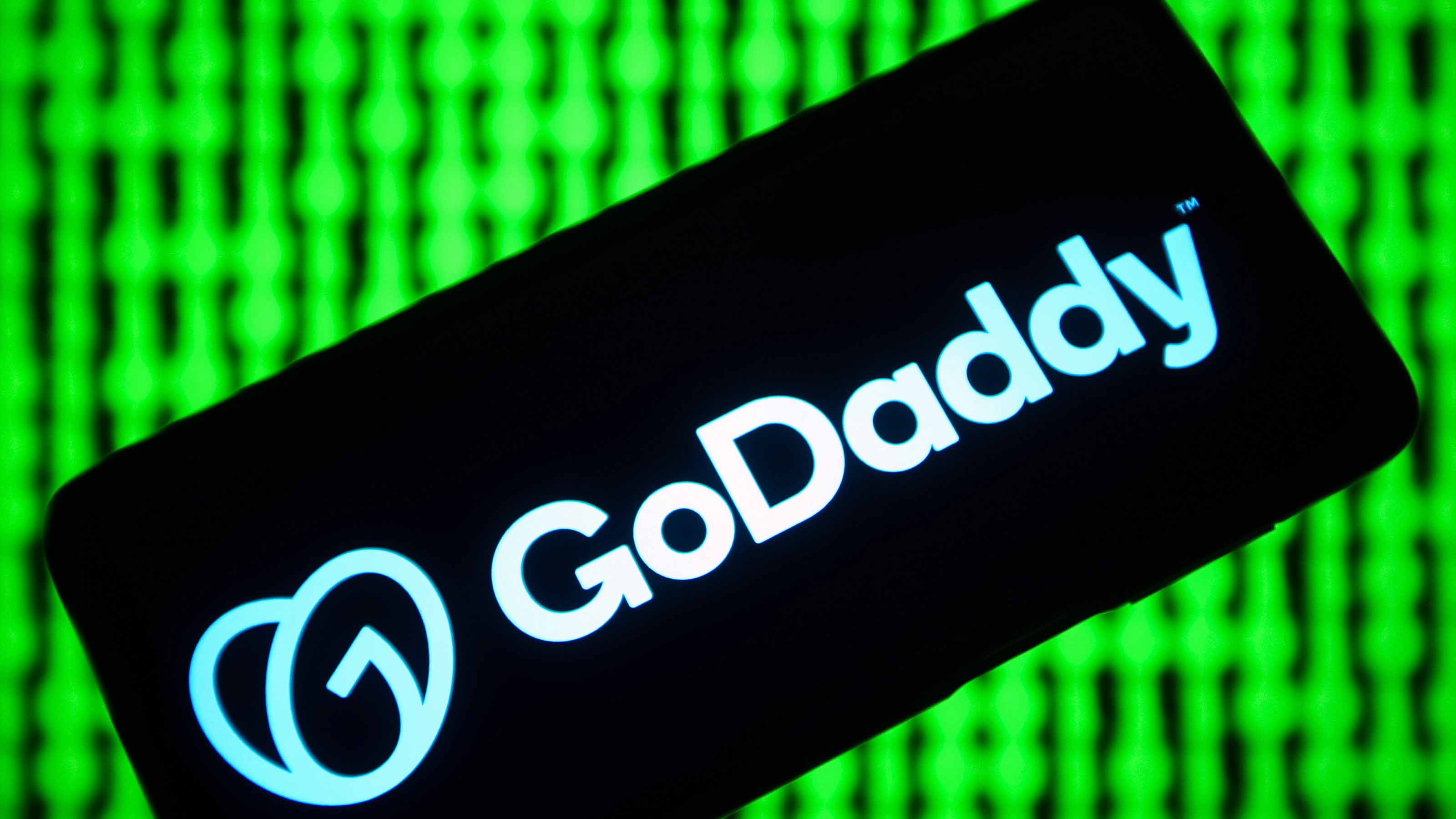
GoDaddy
- Market value: $12.7 billion
- Dividend yield: N/A
GoDaddy (GDDY, $76.45) was an early pioneer in the website hosting space, which helped the company double its revenues in the five years following its 2015 initial public offering (IPO). However, new cloud-based challengers like Shopify (SHOP) have recently emerged to capture market share, which is creating big challenges for GDDY.
GDDY hopes to recapture some of its mojo with new web-based tools for marketing, digital payment, website design and security. These new point-of-sale products helped GoDaddy boost revenues 14% year-over-year in the September quarter. While earnings per share declined, unlevered free cash flow grew 12% and the company is guiding for 16% free cash flow growth in 2021.
In late 2021, Wall Street learned GoDaddy was on the radar of hedge fund Starboard Value. Regulatory filings revealed the activist investor acquired a 6.5% stake in GDDY. Starboard Value hasn't yet disclosed its strategy for boosting returns, but has considerable expertise in this space, having taken Web.com Group private in a $2 billion deal four years ago and guided its subsequent merger into Symantec.
Jeffries analyst Brent Thill named GoDaddy a top value play in 2022 after learning of Starboard Value's involvement. Thill agrees with the hedge fund's assessment that GDDY is undervalued, and feels the company is not getting the recognition it deserves for its rising free cash flows. He has a Buy rating on the stock.
Investor interest in shares peaked in late December shortly after Starboard Value's stake was announced, but shares are down roughly 10% since then. GDDY stock is still valued much more richly than web-based peers, but is trading at a nearly 56% discount to its five-year forward P/E ratio.
Profit and prosper with the best of Kiplinger's advice on investing, taxes, retirement, personal finance and much more. Delivered daily. Enter your email in the box and click Sign Me Up.

Lisa currently serves as an equity research analyst for Singular Research covering small-cap healthcare, medical device and broadcast media stocks.
-
 How Much It Costs to Host a Super Bowl Party in 2026
How Much It Costs to Host a Super Bowl Party in 2026Hosting a Super Bowl party in 2026 could cost you. Here's a breakdown of food, drink and entertainment costs — plus ways to save.
-
 3 Reasons to Use a 5-Year CD As You Approach Retirement
3 Reasons to Use a 5-Year CD As You Approach RetirementA five-year CD can help you reach other milestones as you approach retirement.
-
 Your Adult Kids Are Doing Fine. Is It Time To Spend Some of Their Inheritance?
Your Adult Kids Are Doing Fine. Is It Time To Spend Some of Their Inheritance?If your kids are successful, do they need an inheritance? Ask yourself these four questions before passing down another dollar.
-
 Dow Gains 664 Points as Rate-Cut Hopes Rise: Stock Market Today
Dow Gains 664 Points as Rate-Cut Hopes Rise: Stock Market TodayMarkets are pricing in higher odds for a December rate cut, fueling a major rally in stocks ahead of the Thanksgiving holiday.
-
 Nasdaq Rises 2.7% as Musk Tweets TSLA Higher: Stock Market Today
Nasdaq Rises 2.7% as Musk Tweets TSLA Higher: Stock Market TodayMarkets follow through on Friday's reversal rally with even bigger moves on Monday.
-
 Stocks Edge Higher With Nvidia, Fed in Focus: Stock Market Today
Stocks Edge Higher With Nvidia, Fed in Focus: Stock Market TodayThe AI bellwether reports earnings after today's close, while Wall Street is keeping a cautious eye on President Trump's attacks against the Fed.
-
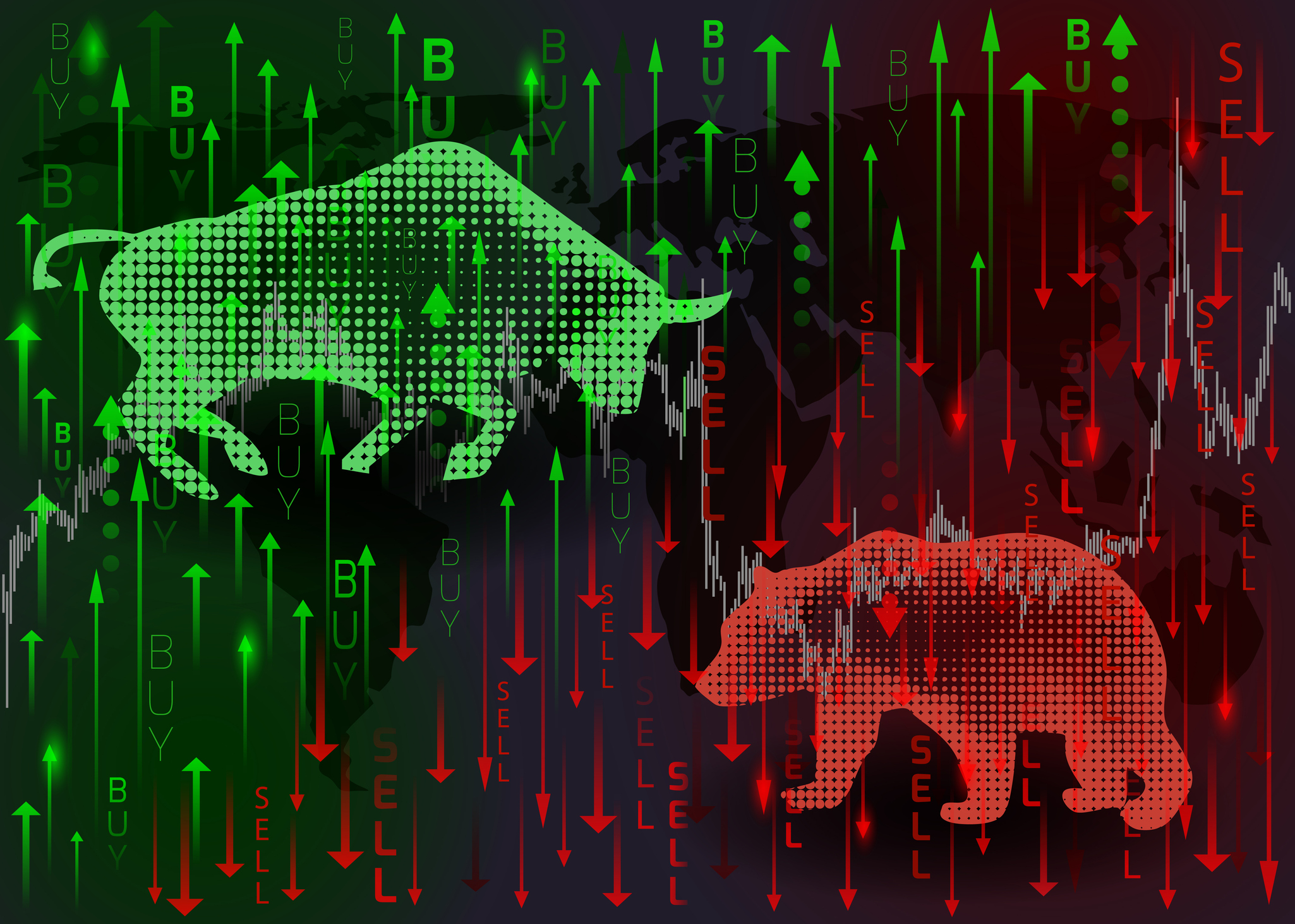 Dow Bleeds Red Due to Big Blue: Stock Market Today
Dow Bleeds Red Due to Big Blue: Stock Market TodaySix of the official GICS sectors were in the green, led by communications services, technology and energy stocks.
-
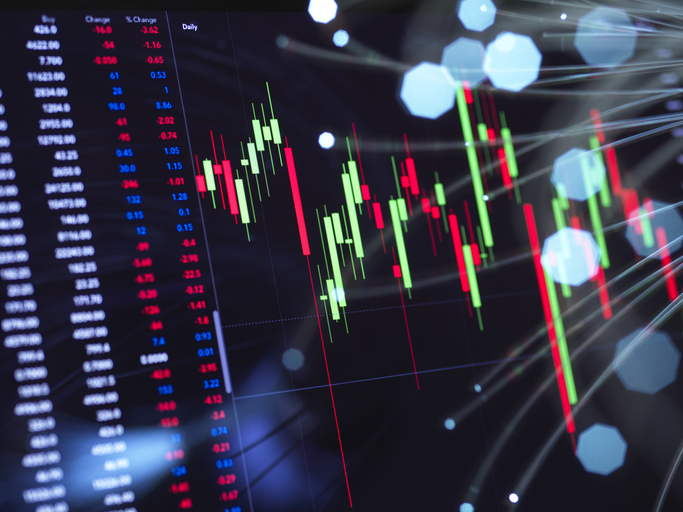 Dow Leads as Merck, Amgen Gain: Stock Market Today
Dow Leads as Merck, Amgen Gain: Stock Market TodaySecond-quarter earnings season remained top of mind Tuesday, with Coca-Cola and GM among those reporting.
-
 Stock Market Today: Rally Extends on Good-Enough Expectations
Stock Market Today: Rally Extends on Good-Enough ExpectationsFiscal policy still has markets' attention, but taxes rather than tariffs and deficits rather than inflation are participants' primary focus.
-
 Stock Market Today: Dow, S&P 500 Extend Win Streaks to 8
Stock Market Today: Dow, S&P 500 Extend Win Streaks to 8Strong earnings results for Magnificent 7 stocks Microsoft and Meta fueled upside in the equities market.
-
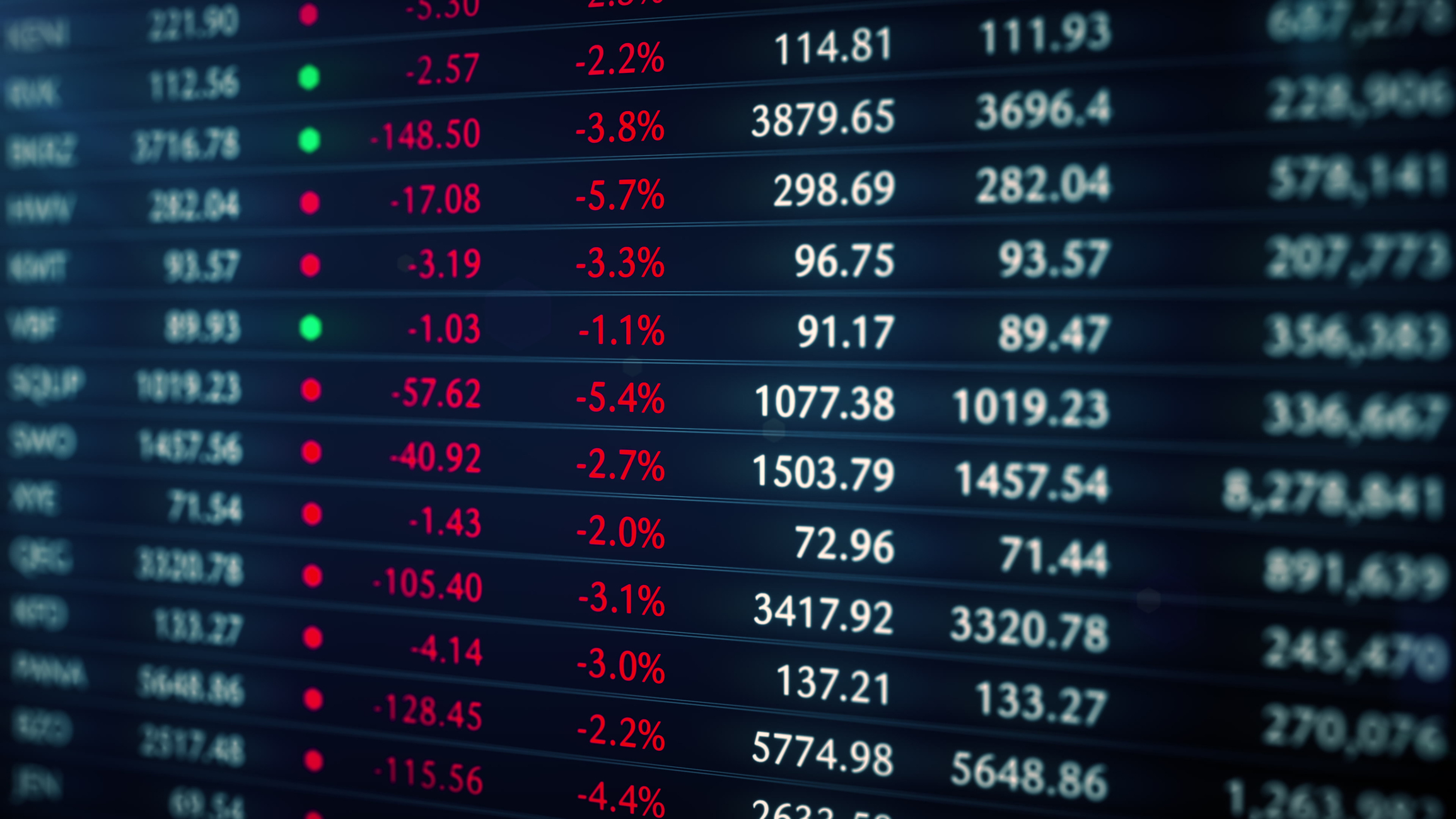 Stock Market Today: Auto Tariffs Send Stocks Lower
Stock Market Today: Auto Tariffs Send Stocks LowerThe main indexes snapped their win streaks after the White House confirmed President Trump will talk about auto tariffs after the close.
